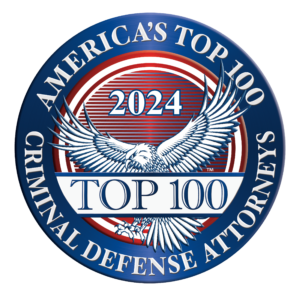Understanding Federal Criminal Drug Counterfeiting
It’s fairly obvious to most people that it is illegal to sell most drugs without the proper permits or at all depending on a drug’s legal status. But what happens when the purported drugs turn out to be fake? Does a seller of a fake drug get to avoid criminal liability because the drugs were something else? The answer to these questions lies within the definition of drug counterfeiting. Drug counterfeiting can result in similar consequences to selling the real thing. If you are facing federal drug counterfeiting charges, then it is important to speak to an experienced federal drug trafficking attorney right away.
WHAT IS DRUG COUNTERFEITING?
Drug counterfeiting is the act of selling or producing a substance that pretends to be a certain controlled substance but actually isn’t. If someone goes to the grocery store and buys portabella mushrooms then later turns around and attempts to sell them as psychedelic mushrooms that contain psilocybin, then he or she can face drug counterfeiting charges. If this act was taken across state lines, then it can become a federal drug counterfeiting charge under 21 USC § 331. Once the sale of a fake drug crosses state lines it affects interstate commerce. If an illegal transaction affects interstate commerce, then it becomes a criminal issue governed by federal law. 18 USC § 2320 prohibits the trafficking of counterfeit goods or services. While this most often applies to fake consumer goods, such as handbags, it can also apply to counterfeit drugs. An individual can also be charged for federal criminal fraud under 18 USC § 1001 for drug counterfeiting activities.
THE POTENTIAL PENALTIES
It is important to understand that even though the drugs may be fake, the punishments are real and potentially significant. A conviction under 21 USC § 331 can lead to as long as one year in jail, along with a fine of up to $1,000. If you are accused of having an intent to mislead, then you can face up to three years in federal prison and a fine of up to $10,000 for each transaction. Each transaction is its own criminal offense. So, it is common to see individuals charged with several counts of alleged illegal sales. A conviction for criminal fraud under 18 USC § 1001 can result in up to five years in federal prison. Put simply, do not take these charges lightly as they can result in serious consequences.
WHAT ARE THE POSSIBLE DEFENSES?
When real drugs are alleged to be involved in a criminal case, the purported drugs are collected and sent to a lab for testing and confirmation that they are in fact drugs. The simple possession of these drugs is illegal, so the job for a prosecutor is a bit easier when drugs are real. When counterfeit drugs are alleged to be involved, it is the prosecutor’s responsibility to prove how the counterfeit drugs were presented and promoted by the defendant. If a defendant is carrying a bag of dried mushrooms in his pocket, then the prosecutor must show how the defendant alleged that they were psychedelic mushrooms before attempting to sell them. Simply carrying regular mushrooms is not illegal, so the prosecutor has additional responsibilities when alleging the sale of counterfeit drugs. There also could be search issues related to a violation of the Constitution which can lead to the suppression of evidence and case dismissal.
HOW DOES THIS AFFECT ME?
Hopefully, none of this affects you. But if you are currently being investigated for selling counterfeit drugs, or have already been charged, then this can affect you directly. Investigation and enforcement related to counterfeit drugs are on the rise. If you need legal help, then be sure to speak to an experienced attorney right away.





